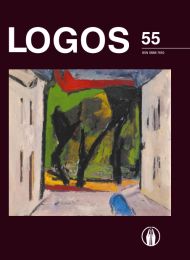Esé Kaip Filosofinio Diskurso Forma: M. De Montaigne Vs. F. Bacon
The Essay as a Form of Philosophical Discourse: M. de Montaigne vs. F. Bacon
Author(s): Darius KlibavičiusSubject(s): Metaphysics, Renaissance Philosophy, Philosophy of Language, Hermeneutics
Published by: Visuomeninė organizacija »LOGOS«
Keywords: M. de Montaigne; F. Bacon; essay; form; identity; narrative; truth; irony; quotation;
Summary/Abstract: Essay writing by Michel de Montaigne (1533-1592) and Francis Bacon (1561-1626) are analysed in this article. The hypothesis raised is that the essay writing by F. Bacon is formal whereas that by M. de Montaigne is informal. F.Bacon regards the form of the essay as an alternative to the language of the natural sciences. He provides a reader with Essays or Counsels: Civil and Moral. The initiator of the personal essay is M. de Montaigne. He creates narrative identity and considers his own “I” as an inseparable part of the Essay. This article deals with the approach of philosophy towards literature following an analysis on the issue of truth making. Certain aspects of stylistics are discussed - applying the principle of irony and the meaning of quotations. The examination reveals how the process occurs while the author creates his/her identity and what conditions are required to consider the essay form as an alternative to philosophical discourse. Additionally this work emphasizes the origin of the essay genre which links artistic and scientific discourse.
Journal: LOGOS - A Journal of Religion, Philosophy, Comparative Cultural Studies and Art
- Issue Year: 2008
- Issue No: 55
- Page Range: 217-222
- Page Count: 6
- Language: Lithuanian

